Jenkins Related Books
|
The books in this list are not endorsed by the Jenkins project. The list of books on this page is provided for informational purposes, sorted from newest to oldest publication date. Since older books on the list can contain outdated information, the Jenkins documentation can help fill in any gaps. |
Hands-on Pipeline as YAML with Jenkins
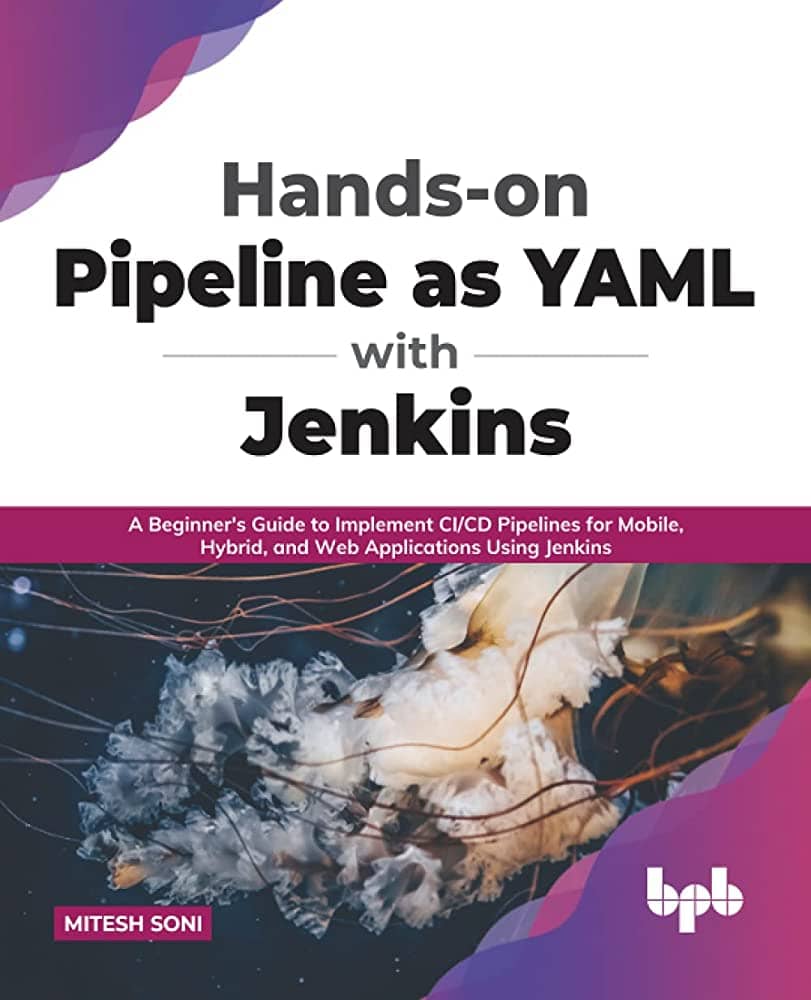
Authored by Mitesh Soni
Published by BPB Publications, 2021
This book provides practical knowledge on how to create YAML pipelines, using Jenkins for efficient and scalable CI/CD pipelines. There are introductions to various essential topics such as DevOps' history, culture, and practices. This book also reviews different types of pipelines such as Build Pipeline, Scripted Pipeline, Declarative Pipeline, YAML Pipelines, and Blue Ocean. This book provides a journey for readers to create YAML pipelines for various application systems, including Android, AngularJS, Flutter, and Ionic Cordova. By the end of this book, you will be able to try out some of the best practices to implement DevOps using Jenkins and YAML.
Jenkins 2: Up and Running
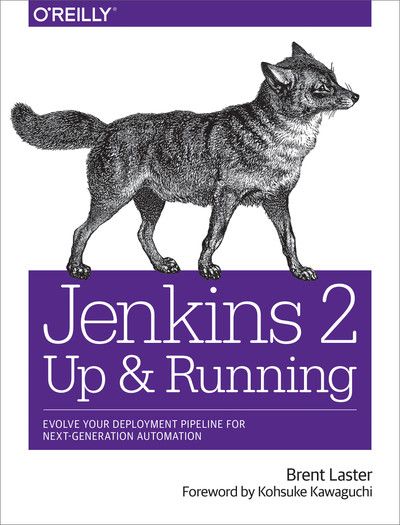
Authored by Brent Laster
Published by O'Reilly Media, 2018
Design, implement, and execute continuous delivery pipelines with a level of flexibility, control, and ease of maintenance that was not possible with Jenkins before. With this practical book, build administrators, developers, testers, and other professionals will learn how the features in Jenkins 2 let you define pipelines as code, leverage integration with other key technologies, and create automated, reliable pipelines to simplify and accelerate your DevOps environments. Author Brent Laster shows you how Jenkins 2 is significantly different from the more traditional, web-only versions of this popular open source automation platform. If you’re familiar with Jenkins and want to take advantage of the new technologies to transform your legacy pipelines or build new modern, automated continuous delivery environments, this is your book. . Create continuous delivery pipelines as code with the Jenkins domain-specific language . Get practical guidance on how to migrate existing jobs and pipelines . Harness best practices and new methods for controlling access and security . Explore the structure, implementation, and use of shared pipeline libraries . Learn the differences between declarative syntax and scripted syntax . Leverage new and existing project types in Jenkins . Understand and use the new Blue Ocean graphical interface . Take advantage of the capabilities of the underlying OS in your pipeline . Integrate analysis tools, artifact management, and containers
Learning Continuous Integration with Jenkins
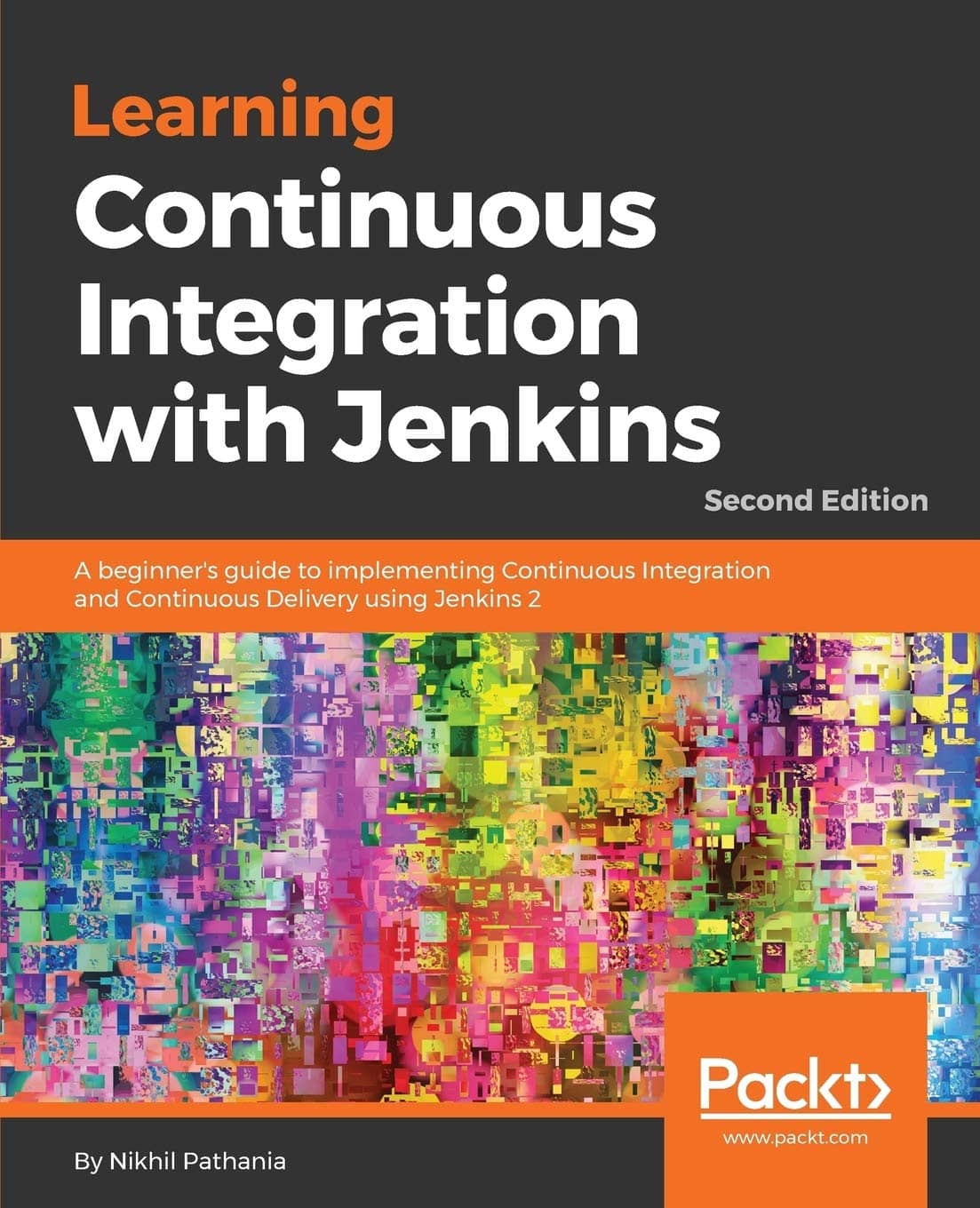
Authored by Nikhil Pathania
Published by Packt Publishing Limited, 2017
In this book, you'll discover how to take advantage of a Continuous Integration and Continuous Delivery solution to speed up productivity and achieve faster software delivery. You'll read about all the new features introduced in Jenkins 2.x, such as Pipeline as code, Multibranch pipeline, the Docker Plugin, and more. You'll learn how to implement Continuous Integration and Continuous Delivery, by orchestrating multiple DevOps tools using Jenkins. You'll learn how to manage users, projects, and permissions in Jenkins to ensure better security. Finally, you'll learn how to leverage the power of plugins in Jenkins!
Jenkins Essentials
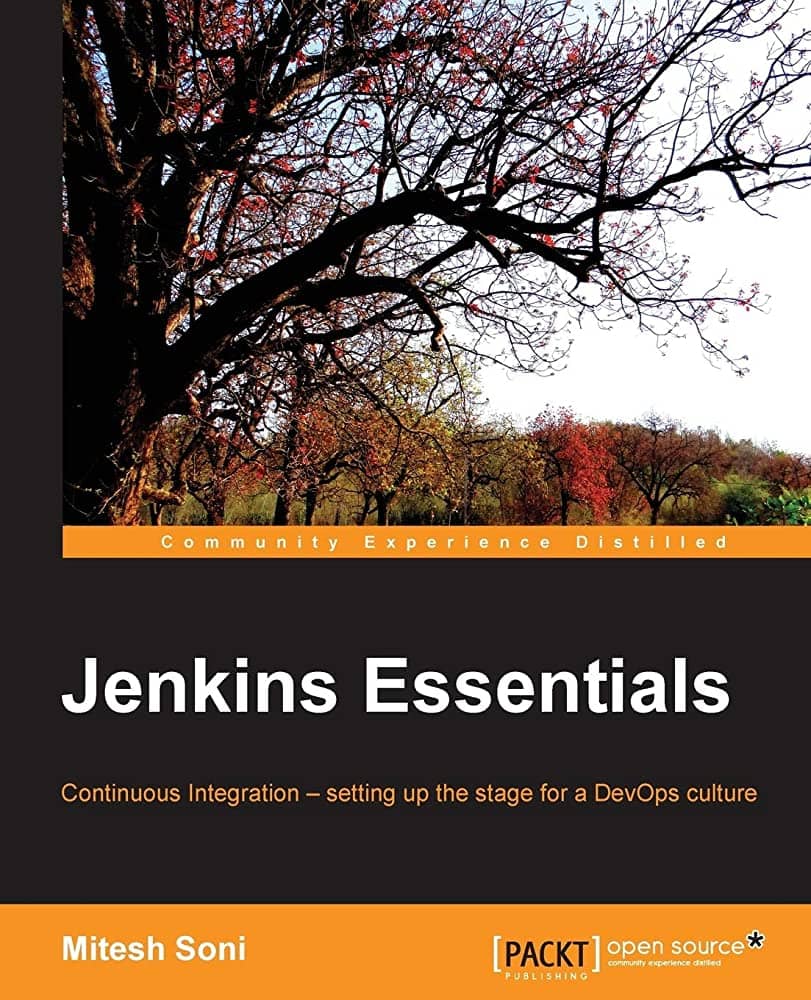
Authored by Mitesh Soni
Published by Packt Publishing Limited, 2015
If you are a Jenkins novice or beginner with a basic understanding of continuous integration, then this is the book for you. Beginners in Jenkins will get quick hands-on experience and gain the confidence to go ahead and explore the use of Jenkins further.
Mastering Jenkins
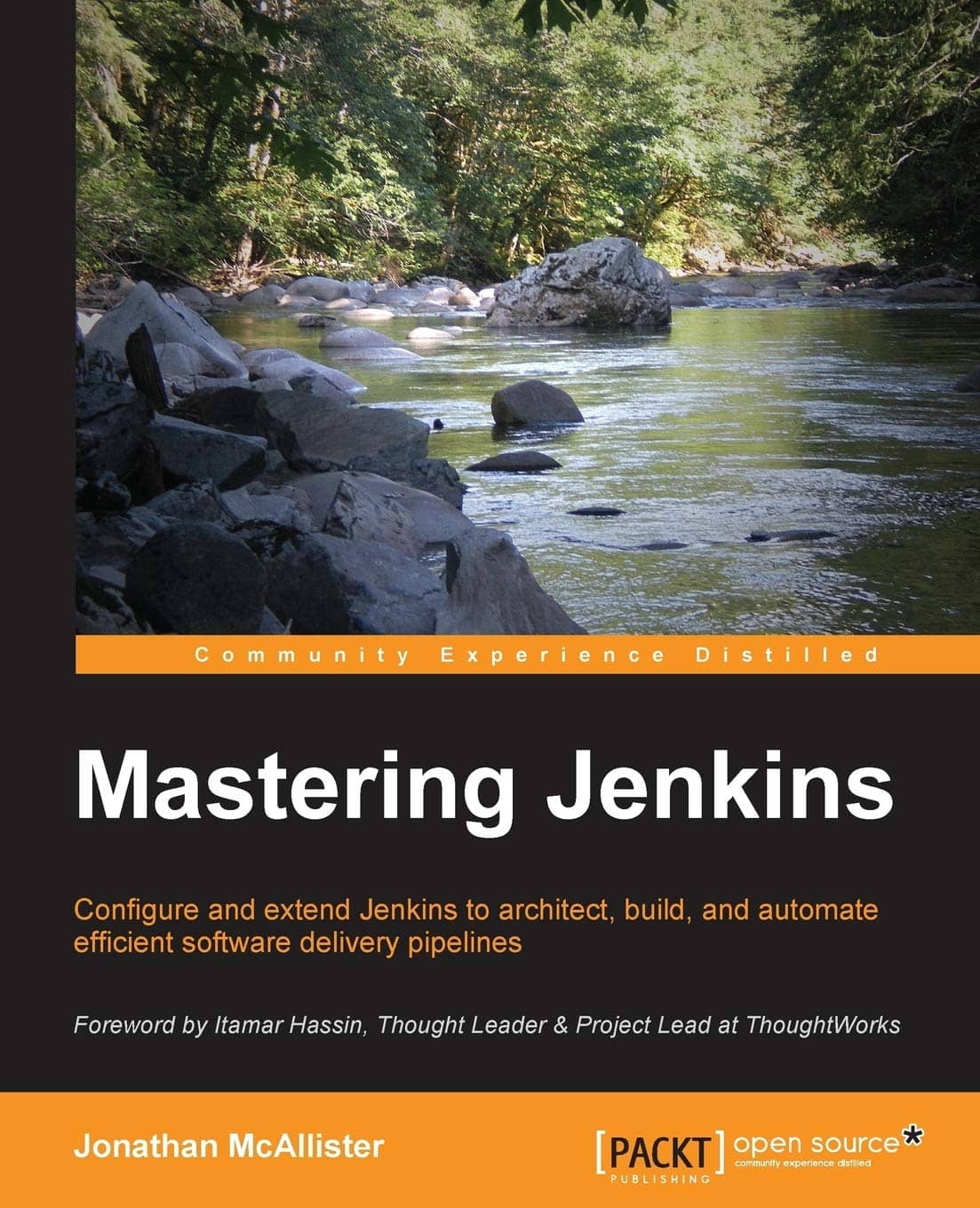
Authored by Jonathan McAllister
Published by Packt Publishing, 2015
Learn how to configure and extend Jenkins to architect, build, and automate efficient software delivery pipelines. You'll review how to configure and horizontally scale a Jenkins installation, to support a development organization of any size. This book also describes how to implement Continuous Integration, Continuous Delivery, and Continuous Deployment solutions in Jenkins. Discover how automated testing architecture and scalable automated testing techniques can be used to take your Jenkins builds to the next level. You'll read about how to manage scalable automation pipelines in Jenkins using the latest build, test, and deployment strategies.
Integrating PHP Projects with Jenkins
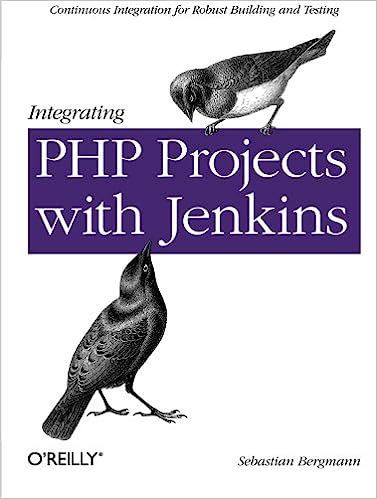
Authored by Sebastian Bergmann
Published by O'Reilly Media, 2011
This concise book shows PHP developers how to use Jenkins, the popular continuous integration server, to monitor various aspects of software quality throughout a project’s lifecycle.
Jenkins: The Definitive Guide: Continuous Integration for the Masses
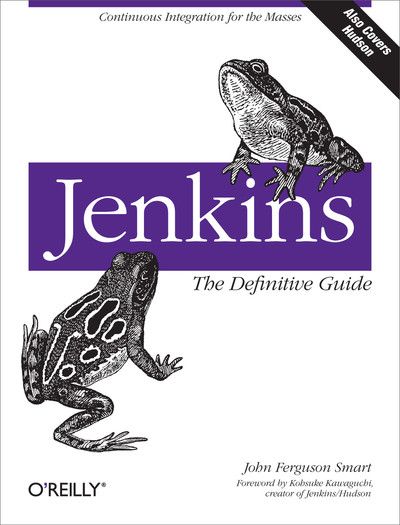
Authored by John Ferguson Smart
Published by O'Reilly Media, 2011
Streamline software development with Jenkins, the popular Java-based open source tool that has revolutionized the way teams think about Continuous Integration (CI). This complete guide shows you how to automate your build, integration, release, and deployment processes with Jenkins—and demonstrates how CI can save you time, money, and many headaches. Ideal for developers, software architects, and project managers, Jenkins: The Definitive Guide is both a CI tutorial and a comprehensive Jenkins reference. Through its wealth of best practices and real-world tips, you'll discover how easy it is to set up a CI service with Jenkins. 1. Learn how to install, configure, and secure your Jenkins server 2. Organize and monitor general-purpose build jobs 3. Integrate automated tests to verify builds, and set up code quality reporting 4. Establish effective team notification strategies and techniques 5. Configure build pipelines, parameterized jobs, matrix builds, and other advanced jobs 6. Manage a farm of Jenkins servers to run distributed builds 7. Implement automated deployment and continuous delivery